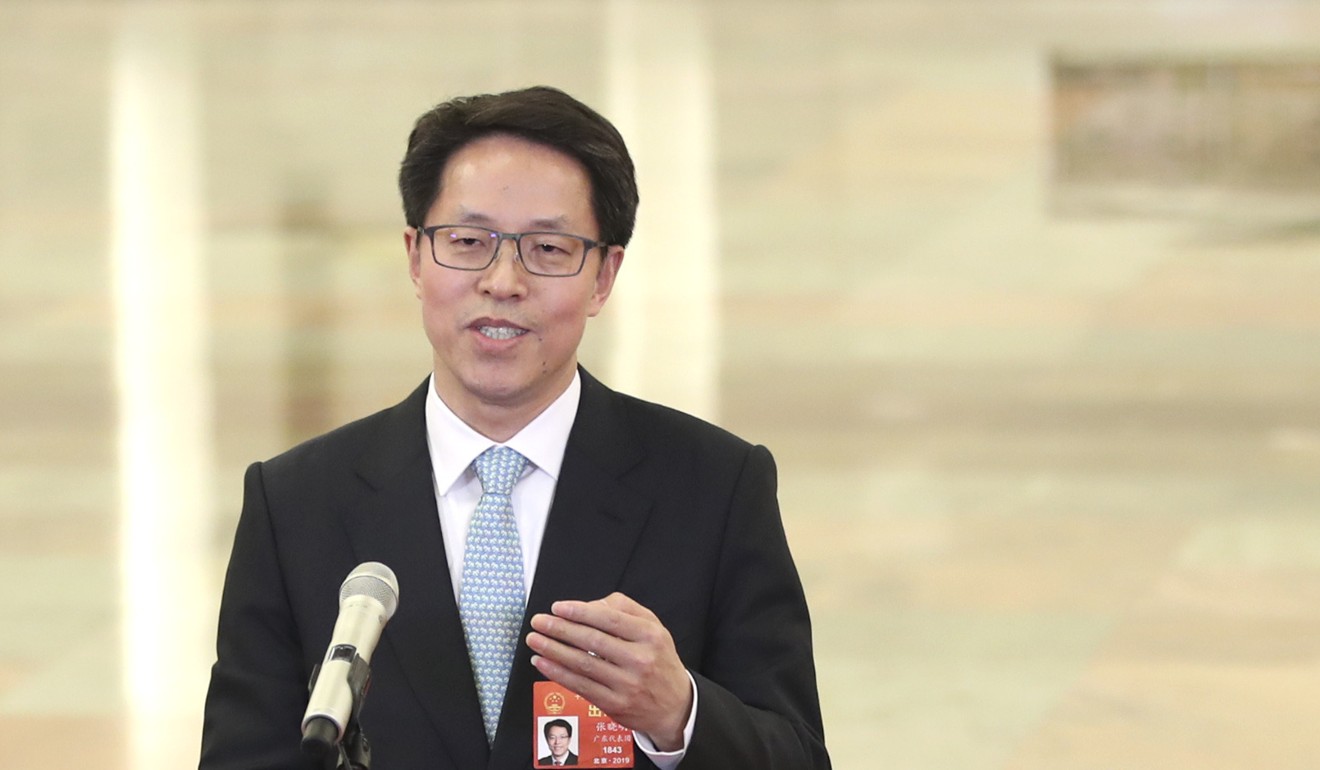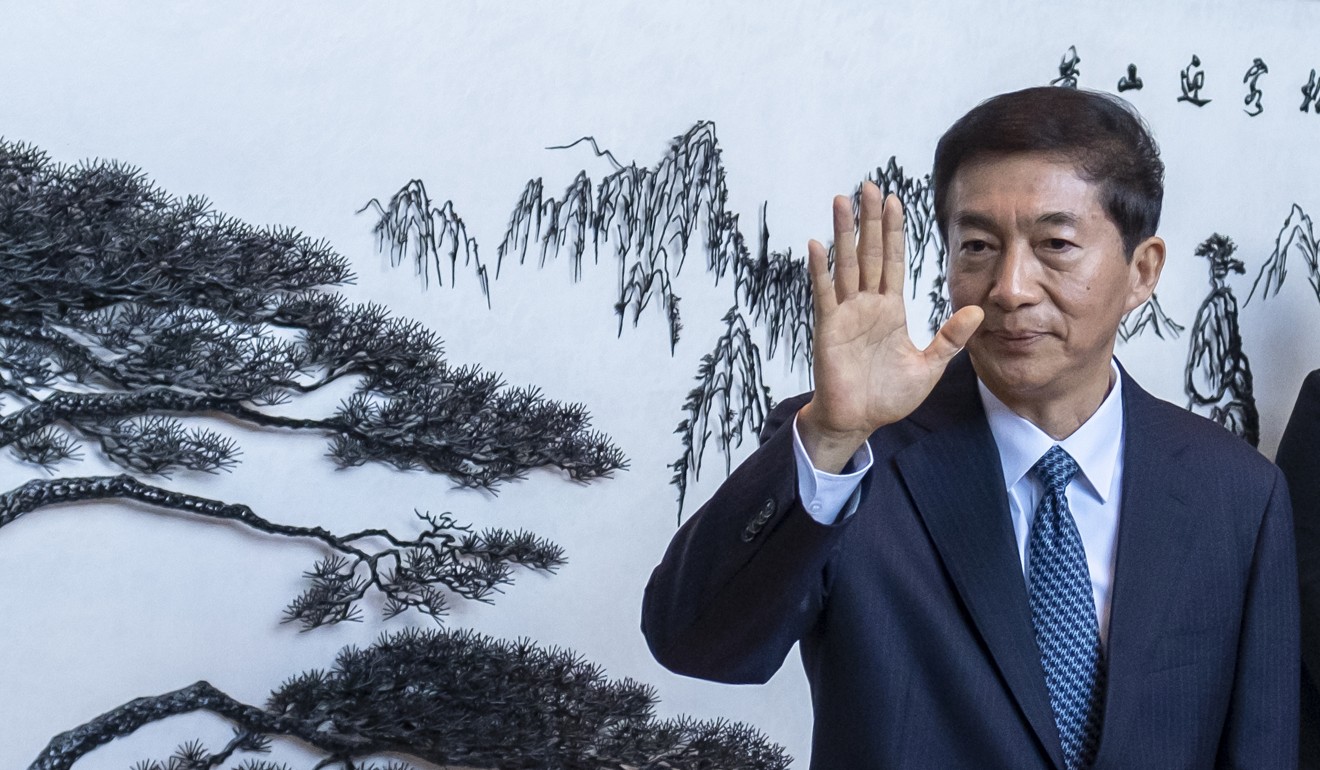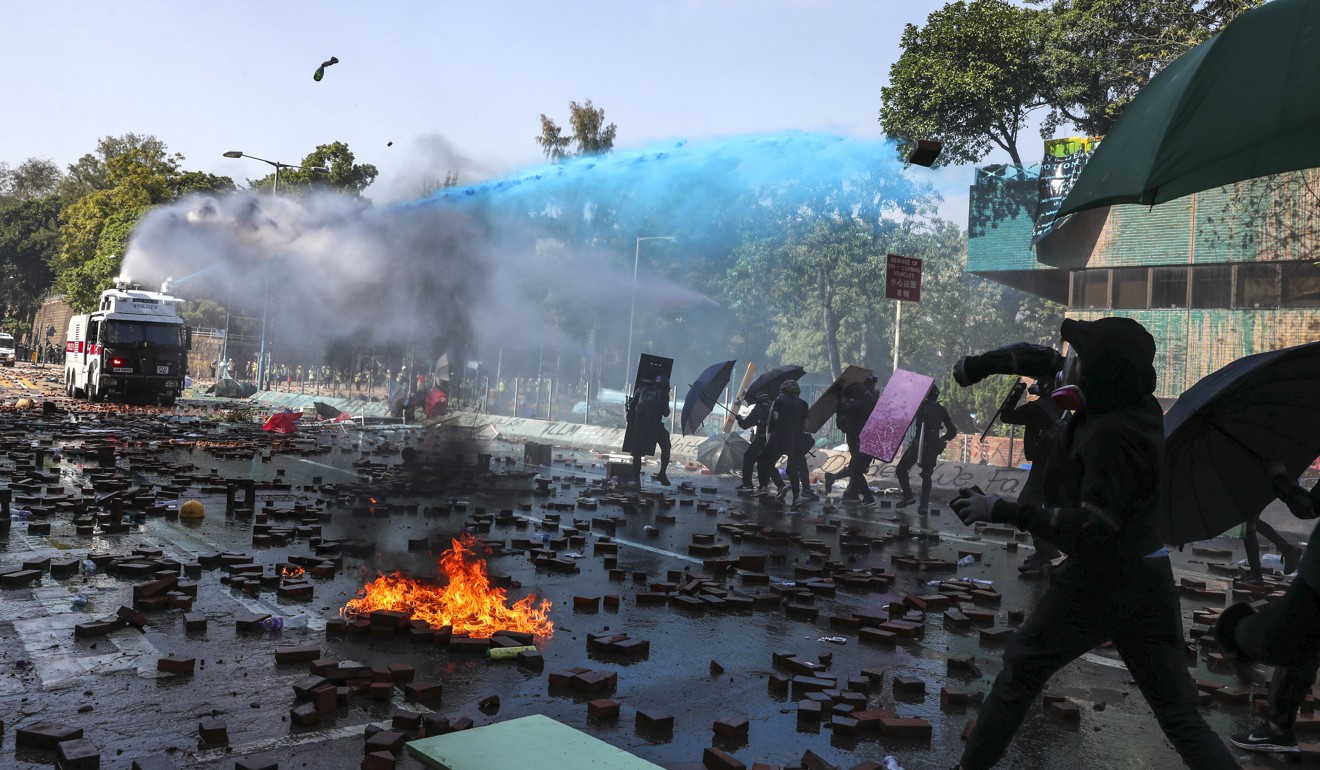
China upgrades Hong Kong affairs with new chief
- Former Zhejiang boss takes over the reins from Zhang Xiaoming, who becomes deputy director for daily affairs
- Move will fix reporting-line issues between Beijing and Hong Kong, source says

Beijing has for the first time put a state leader, Xia Baolong, in charge of the cabinet-level office that oversees Hong Kong affairs, strengthening direct supervision over the implementation of its policies in the city while reducing incumbent chief Zhang Xiaoming’s authority in an unexpected demotion.
The major shake-up of the Hong Kong and Macau Affairs Office (HKMAO) – coming after months of social turmoil and anti-government protest violence in Hong Kong, and as the city reels from the ongoing coronavirus crisis – still leaves Zhang running daily operations as executive deputy director with his ministerial rank intact.
Xia, the secretary general and vice-chairman of the country’s top political advisory body, the Chinese People’s Political Consultative Conference (CPPCC), will be the HKMAO’s director.
He has a reputation for being hard-handed and is widely regarded as a trusted ally of President Xi Jinping, as they worked together for more than four years in Zhejiang province in the mid-2000s – Xi as Communist Party chief and Xia his deputy.

The reshuffle was also seen as leaving Chief Executive Carrie Lam Cheng Yuet-ngor in no doubt as to the reporting hierarchy – the leaders of Hong Kong and Macau were previously ranked at the same level as the directors of the two offices.
Lam extended a “warm welcome” to Xia in his new role, issuing a statement saying: “The appointment of Mr Xia as the HKMAO director in addition to his capacity as the vice-chairman of the National Committee of the CPPCC is testimony to the importance the central government attaches to Hong Kong and Macau affairs.”
Tam Yiu-chung, Hong Kong’s sole representative in China’s top legislative body, the National People’s Congress Standing Committee, said the reshuffle was aimed at boosting the implementation of the central government policies for the city.
“The installation of a heavyweight, who has a close working relationship with President Xi Jinping, can help win the support of other mainland government agencies regarding the work on Hong Kong,” Tam said.
Opposition politicians raised concerns that it would mean a tightening of Beijing’s grip on Hong Kong, citing Xia’s hardliner reputation, but also expressed hope that state leaders would get a better idea of the situation in the city.
“The structure now seems like the central government is overseeing Hong Kong and Macau affairs directly, and the role of Beijing’s liaison office here seems to diminish and there is no need for it to relay Hong Kong people’s opinions to Beijing,” said Tanya Chan, convenor of the legislature’s pan-democratic camp.
Li Xiaobing, a Hong Kong specialist and law professor at Nankai University in Tianjin, said: “Zhang Xiaoming’s career is limited to the Hong Kong-Macau system. Xia’s appointment will broaden the knowledge and scope of the team working for Hong Kong-Macau affairs.”
A source familiar with the situation said Xia would join the top-level working group headed by Vice-Premier Han Zheng that decides Beijing’s policies for Hong Kong and Macau.
Zhang would continue to serve as a member of the working group, as “he continues to lead the work of the secretariat”, a source said.

The HKMAO, being the group’s secretariat, plays a facilitator role between the two special administrative regions and the central government, which often overlaps with Beijing’s liaison offices in the two cities.
Besides Xia’s appointment, Beijing’s top envoys to Hong Kong and Macau will take up new roles in the HKMAO, too – directors Luo Huining and Fu Ziying, of the Hong Kong and Macau liaison offices respectively, will double as deputy directors of Xia’s office and report to him.
Another source familiar with the matter said the new arrangement would fix reporting-line issues because the HKMAO had effectively been “promoted” to a level above Beijing’s liaison offices.
“Although Zhang has become the deputy executive director in charge of daily operations now, his role has remained largely unchanged,” the source said, adding that the new structure would also further improve communication with the Beijing-based HKMAO.
Qin Qianhong, a Hong Kong affairs expert and law professor at Wuhan University, said: “Previously, the HKMAO might want to do something, but the liaison offices might have their own minds about it. Standing at the same rank, they might hold each other back. Now with Xia, who is clearly from higher up, the overall planning and coordination will be better.”

The shake-up comes about a month after Beijing replaced its top representative in Hong Kong in the first major leadership reshuffle since the anti-government protests broke out in June.
Luo, a former provincial party chief with no relevant experience in Hong Kong but a reputation for being Beijing’s stern enforcer, was called out of semi-retirement to take over from Wang Zhimin last month.
Wang was blamed in some quarters for the turmoil that escalated under his watch, as the protests first sparked by the now-withdrawn extradition bill expanded into a wider anti-government campaign that was marked by mass rallies and street violence.
Unlike Zhang, who gets to keep both his job portfolio and rank, Wang held on to his ministerial rank but was booted out of the Hong Kong-Macau supervisory system and transferred to the history research unit under the party’s Central Committee.
Additional reporting by Alvin Lum, Gary Cheung and Ng Kang-chung
Purchase the China AI Report 2020 brought to you by SCMP Research and enjoy a 20% discount (original price US$400). This 60-page all new intelligence report gives you first-hand insights and analysis into the latest industry developments and intelligence about China AI. Get exclusive access to our webinars for continuous learning, and interact with China AI executives in live Q&A. Offer valid until 31 March 2020.